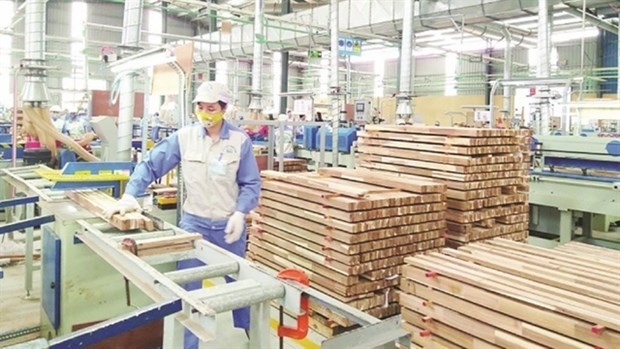ASEAN growth solid despite global risks
Wednesday, March 29,2017AsemconnectVietnam - Although geopolitical risks continue to plague economies, ASEAN countries are still expected to grow thanks to their strong fundamentals and increasing supply of intra-block capital.
And among all ASEAN countries, Vietnam seems to be the most attractive destination for this capital flow.
At the Invest ASEAN 2017 conference held by Maybank Kim Eng last week in Singapore, 800 participants from funds, universities, and listed corporates discussed the future of ASEAN following the breakup of the Trans-Pacific Partnership (TPP). Three ASEAN states- Vietnam, Malaysia, and Singapore- were part of the doomed trade pact from which the US already withdrew.
“The world is going through a tough time with rising protectionist policies in the US and Europe, the fall-through of TPP, rate hiking plans of the US federal Reserve, and slowdowns in the Chinese economy. As a region with strong connectedness to the world in term of trade and investment, ASEAN is affected by these headwinds as well”, said Dato’ John Chong, CEO of Maybank Kim Eng Group.
The CEO was optimistic about ASEAN’s future growth, saying that the region will benefit from its 600 million consumers, expanding middle-class, a focus on infrastructure development, and intra-ASEAN capital.
Reports from this investment bank shows that ASEAN-5 countries-Indonesia, Vietnam, Malaysia, the Philippines, and Thailand-will grow by 5% in 2017 while the rest of the world remains sluggish. Most notably, Vietnam is forecast to expand by 6.3%, behind only the Philippines in the ASEAN-5 region.
Between 2011 and 2015, intra-ASEAN investment jumped by 11%. Intra-trade still takes up only 24% of the total trade quota, meaning that there is still room for growth. According to Chong, to stay strong amid global volatilities, ASEAN as a whole should focus on intra-block investment and trade. New emerging markets in the region, especially Vietnam, have high potential as recipients for this flow.
Dr Kishore Mahbubani, dean in the practice of Public Policy at the Lee Kuan Yew School (National University of Singapore), also believes in intra-ASEAN collaborations in investment and trade. However, he is concerned that despite geographical proximity, ASEAN states are vastly diverse in terms of politics, culture, languages, and economic development. ASEAN investors must be well-in-formed of these differences when venturing to nearby countries.
Experts at the event praised Vietnam’s determination to build its capital market, including the equitisation and state withdrawals from various state-owned enterprises. More private firms also choose to list on stock exchanges. At the end of 2017, the Vietnamese stock market is expected to reach US$100 billion in market capitalisation, from only US$80 billion last year.
Besides indirect capital, ASEAN investors are also likely to pour direct investments into Vietnam, thanks to cheap money pumped into the market from central banks around the region.
Thailand seems to be the most enthusiastic investor in the merges-and-acquisitions market, having bought a slew of big Vietnam-based firms like Big C, Nguyen Kim, and Metro.
Marc Woo, head of Asia E-commerce at Google, told VIR that Vietnam would also be attractive to regional e-commerce sites and startups in financial services. He expects to see more names like Zalora, Lazada, and Grab in Vietnam in the coming years.
“Similar to other developing markets in ASEAN, only 6% of sales in Vietnam are made through online channels, and less than 2% of Vietnamese people use credit cards. At the same time, 60% of consumers here check reviews online before heading to the shops or restaurants. This is a great potential for e-commerce websites and startups in financial technology across ASEAN” said Woo.
Despite their overall optimism about Vietnam, experts still listed out challenges that should be tackled to welcome foreign investors. Lee Eng Keat, executive director of Singapore’s Economic Development Board, told VIR that Vietnam must focus on infrastructure development to improve its logistical standards.
Funding for infrastructure projects, according to Lee, should come from the private domestic or foreign sector instead of the national budget. He warned that if Vietnam does not improve its facilities, its great economic potential will not be realised.
Source: vov.vn
Source: vov.vn
Expert makes recommendations for stronger Vietnam - France economic links
Indonesian tourism promoted at Vietnam Int’l Travel Mart 2023
Vietnam remains favourite investment destination for European firms: Report
Vietnam's agricultural products face more difficulties in export to China
VietShrimp 2023 opens in Can Tho
Hai Phong works to expand diplomacy, promote investment attraction
Vietnamese, Lao, Thai localities foster trade ties
UK's accession to CPTPP to bring more incentives for Vietnamese exports
Binh Duong looks to step up trade, investment ties with Argentine localities
Conference promotes Vietnam’s trade, investment cooperation with China’s locality
FTAs and trade promotion key to boosting exports
Blockchain facilitates international trade
Vietnamese businesses updated on India’s new foreign trade policy
Vietnam, UAE to soon kick off negotiations of comprehensive economic partnership agreement

Plan on implementing Decision No. 327/QD-TTG dated March ...
Concretize viewpoints, objectives, tasks and solutions of the plan in accordance with practical conditions of the locality, associating ...Plan on implementing national environmental protection ...
Implementation plan of marine aquaculture development ...
Program on conservation and development of Vietnamese ...
Plan on improving quality of human resources to 2025 and ...

Efforts taken to turn culinary culture into national ...
The Vietnam Cuisine Culture Association (VCCA) is taking steps to implement a project to build and develop Vietnamese culinary culture ...Vietnamese cuisine making a name for itself with ...
Vietnam advance to next round of AFC U20 Women’s Asian Cup
Cultural tourism and traditional values promoted through ...



